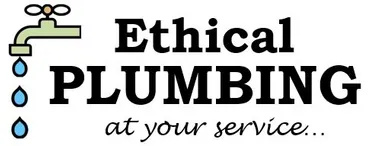Solving Rust and Corrosion Issues in Your Hot Water Heater
Hot water heaters are essential appliances in our homes, providing us with a constant supply of warm water for various purposes. However, they are not immune to the effects of rust and corrosion, which can lead to reduced efficiency, leaks, and even the need for costly replacements. In this blog post, Ethical Plumbing will guide you through the steps to solve rust and corrosion issues in your hot water heater while keeping environmental and ethical considerations in mind.
Understanding Rust and Corrosion
Rust and corrosion occur when metal components within your hot water heater come into contact with water and oxygen. Over time, this exposure can cause the metal to break down, leading to weakened structures, leaks, and potentially contaminated water. While it’s a natural process, there are ways to prevent and address these issues.
Regular Maintenance
Prevention is the first step in addressing rust and corrosion problems. To keep your hot water heater in good shape, follow these maintenance tips:
- Flush the tank annually: Sediment buildup can accelerate corrosion. Draining and flushing your tank annually can remove these deposits, prolonging your heater’s life.
- Check for leaks: Routinely inspect your hot water heater for any signs of leakage. Early detection can prevent significant damage.
- Replace the anode rod: Most hot water heaters have an anode rod designed to attract corrosion, sparing the tank itself. Replacing this sacrificial rod when it’s worn out can extend the life of your heater.
Use a Water Softener
Hard water, which contains high levels of minerals like calcium and magnesium, can accelerate corrosion. Installing a water softener can help reduce the hardness of your water, preventing the buildup of scale and corrosion.
Install a Cathodic Protection System
Consider installing a cathodic protection system, which actively prevents corrosion by using an electric current to protect the metal. While this method may be energy-intensive, it can be a viable solution for those who want to reduce the environmental impact of hot water heater replacements.
Select Environmentally-Friendly Materials
When it comes time to replace your hot water heater, opt for models made from environmentally-friendly materials. Some heaters are designed with corrosion-resistant materials that can extend their lifespan and reduce the need for frequent replacements.
Recycling and Disposal
When disposing of your old hot water heater, ensure it is properly recycled or disposed of at a facility that adheres to ethical and environmental guidelines. Many parts of a hot water heater, including the tank and some components, can be recycled, reducing the environmental impact of your old unit.
Conclusion
Solving rust and corrosion issues in your hot water heater is not only essential for ensuring a steady supply of hot water but also for reducing the environmental impact associated with replacements. By following regular maintenance practices, using a water softener, considering cathodic protection systems, and choosing environmentally-friendly materials, you can extend the life of your hot water heater and minimize its impact on the environment. Ethical Plumbing encourages you to take these steps to ensure the longevity and efficiency of your hot water heater while being mindful of ethical and environmental considerations.
